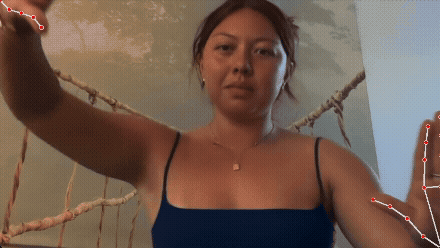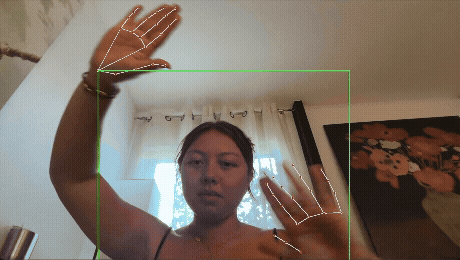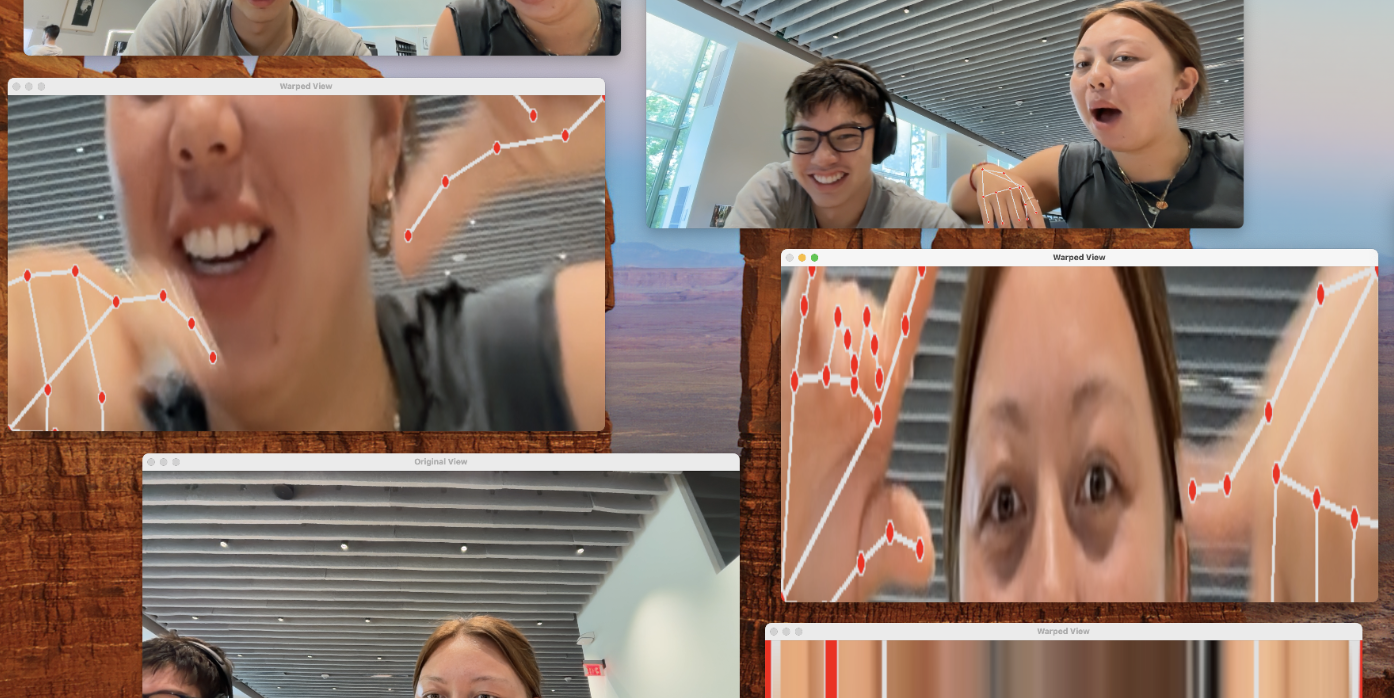Overview
Hand Warp lets users reframe the camera’s angle with their hands, encouraging exploration and real-time manipulation of moving images. By shifting perspective and using physical embodiment within the rendering, users can frame their own “reality,” zoom into detail-driven views, and collaborate with others to capture shared imagery. The goal was to make the hands themselves the control surface—no mouse drags or keyboard presses.
Goals
- Direct embodiment: hands behave like a live camera frame/lens.
- Instant legibility: visible landmarks/outlines show what the system is reading.
- Natural feel: mirrored view so movement feels intuitive.
- Play & collaboration: invite multiple people to co-frame scenes together.
Demo


Process & Design
I surveyed gesture-controlled projects: most use simple hand signs (e.g., pinching to click) but few let your hands directly shape the image. Using MediaPipe, the program tracks both hands and connects them with a rectangle. That rectangle is warped to full screen so whatever you frame fills the entire view. Landmarks and a green outline remain visible for feedback.
- Mirror the camera so movement feels natural.
- Use wrists as anchor points for stability (thumb/index framing is a next step).
- Start with a rectangle warp; build toward rotation, filters, and easing.

Testing & Play
When I put it in front of friends, most figured it out within seconds. They experimented—making tiny boxes, zooming close, or framing a friend beside them. People often ended up playing together, which made it feel less like a tech demo and more like a shared activity.
Next steps focus on smoothness and guidance: on-screen prompts (“show both hands”), smoother transitions to reduce jitter, and playful extras like filters or a “lock frame” option.
What’s Next
- Multiple gestures: rotate, zoom, lock/unlock frames.
- Creative effects layered inside the warped region.
- Browser-first version so anyone can try it without installs.
